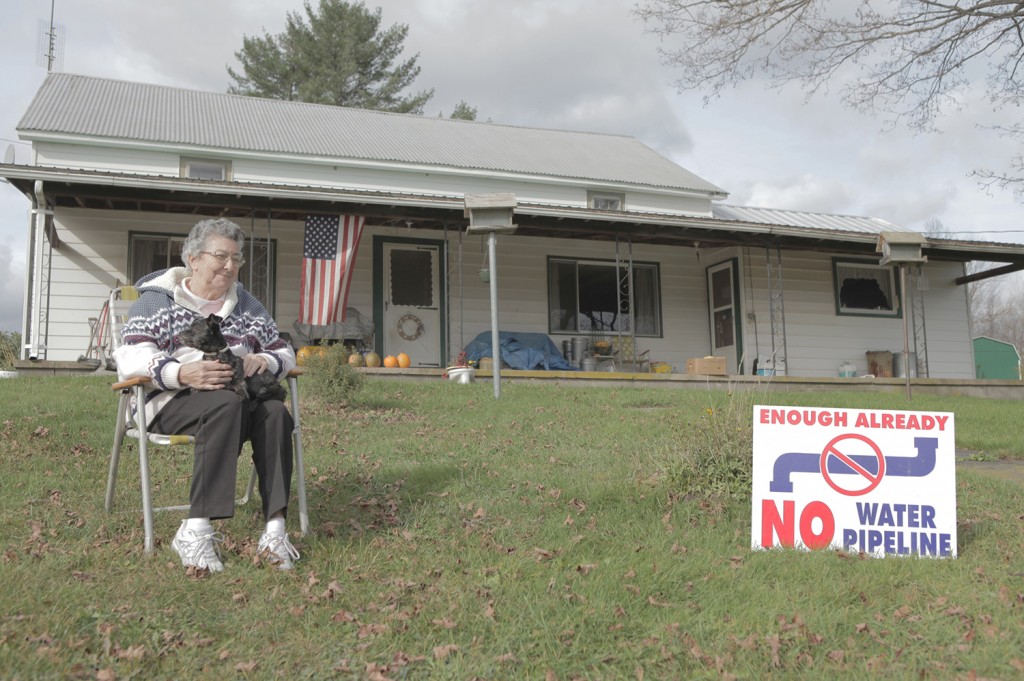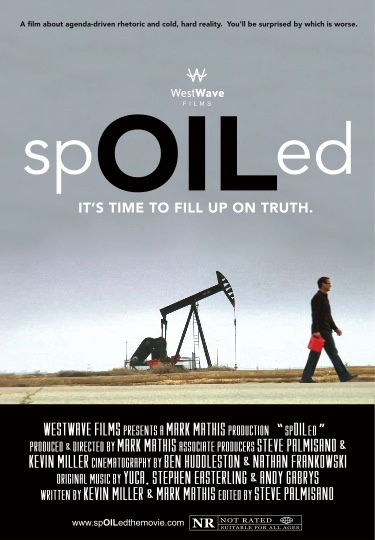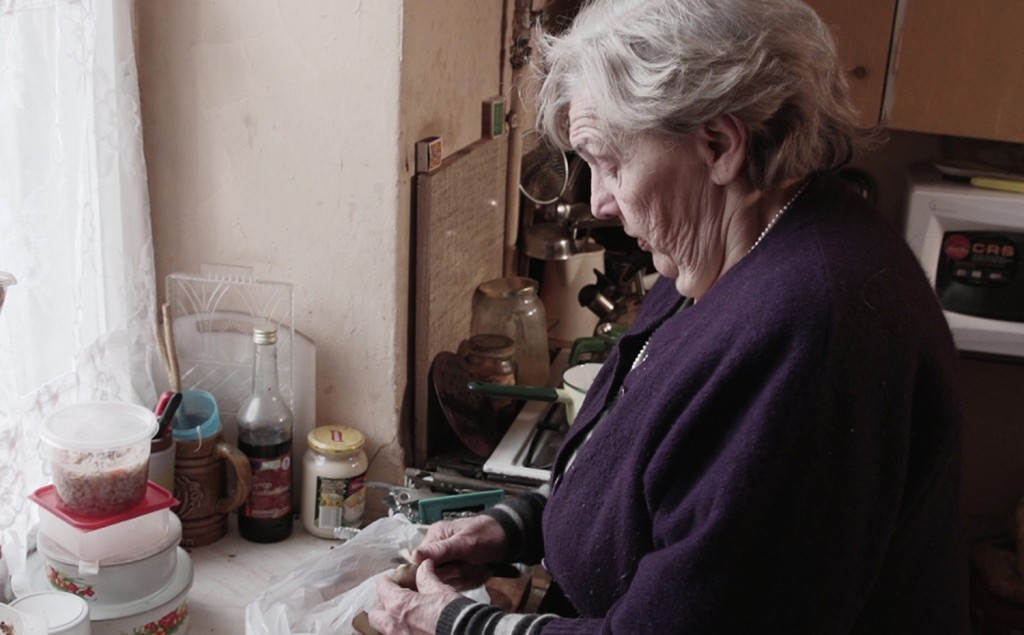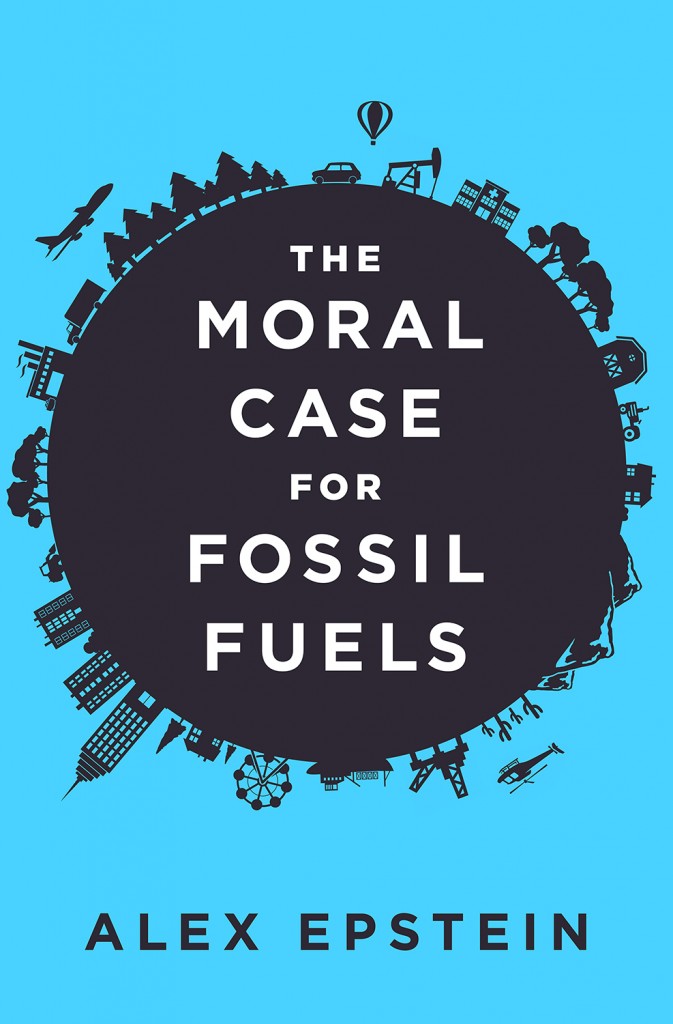by Jesse Mullins
Paradigm Shift
In Part One of this series, we examined some of the distortions used against oil and gas by not just hostile activist groups but by media, even mainstream media. In this installment, we revisit some of that ground but we also broaden the perspective by raising the issue of morals—the morals of our side. And that’s a story that’s been too-little told.
In the beginning was the flaming water faucet. For many in the anti-oil and gas set, things are still pretty much as they were in the beginning—there’s still the flaming water faucet, and one need not trouble them about anything else. But the truth is, that story was debunked, and it’s time to give the truth a chance.
The flaming water faucet was the highlight moment of Josh Fox’s anti-industry documentary film Gasland. As spectacle, it was effective. A filmmaker and a Pennsylvania resident stand in a kitchen as the resident turns on the tap and then, seconds later, strikes a lighter and ignites escaping methane gas, filling the sink for a second with a poof of flame.
There’s just one problem with the whole thing. It’s not connected in any way to the hydraulic fracturing that had taken place in that region.
Another, later filmmaker, Phelim McAleer, creator of the documentary FrackNation, exposed the incident for what it was. A fraud. Nonetheless, many people still cite that faucet incident as their reason for opposing the idea of hydraulic fracturing. Is it a case of a myth persisting?
“Yes,” said McAleer, “it is. I think since our film came out it doesn’t persist as much because we caught Josh Fox on camera and we got him to admit that he knew that people could light their tap water on fire long before frac’ing ever started. When people heard that, they said, ‘That’s not fair—you should have told us that. We thought this was caused by frac’ing, and it wasn’t—it’s a naturally occurring phenomenon. We didn’t know that. You fooled us.’ I think that made a lot of people very angry. You don’t hear so much about the flaming faucet now as you used to.”
Be that as it may, we’ve seen that 2014 was a banner year for oil and gas bashing, and as we venture into 2015, the sentiments still run strong, within a sizeable sector of the public, against fossil fuel energy.
But there are also bright spots for our own cause, and McAleer’s work, as well as the work of another filmmaker, Mark Mathis, creator of the documentary spOILed, have been pushbacks that have injected some truth into the mix.
McAleer said he has received favorable reaction to his film.
“The response has been unbelievable to it,” McAleer said. “There was a real hunger for the truth, I think. There was a huge response when it came out. People were just so happy to find someone was telling the truth about their lives. To be honest, even the New York Times gave it a favorable review. The Hollywood Reporter and Variety too. I think people just knew there was something suspicious with that anti-frac’ing narrative and were so happy to see the truth being told. The response we’ve had from Americans and all over the world has just been amazing. It’s been shown in the British House of Parliament, it’s been shown in the European Parliament, it’s been shown in Poland, South Africa, France, Germany, Canada, and many other countries. People were so hungry for the truth to be told about their lives, were so angry that all these lies were being told about how they lived their lives, and the reality of their life when they looked out the door. So we got an amazing response from farmers, from residents of these townships.”
Mathis, creator of spOILed, has traveled much the same route as McAleer, in trying to bring the truth to light about oil and gas, and that journey has taken him into close contact with the other side. The anti-industry mindset, he has found, is an entrenched and single-minded mindset.
“The anti-industry, I don’t trust them at all,” said Mathis, who has another film in the works, a documentary in a similar vein, one he’s calling Fractured. “As I look at it, as an observer from the outside [outside the anti-industry, of course, but also outside of the oil and gas industry, because Mathis is a journalist, not an industry professional], I dont’ trust them. It’s a fundamental issue. The people who attack fossil fuels, they exaggerate the negatives. They take all these bad things, whether you want to talk about ‘global warming’ or other impacts to the air or water, and the claims they make about them are exaggerated, and in many cases greatly exaggerated, whereas they ignore the benefits. And the benefits are all around them. But you never hear anything about those.
“So they exaggerate the negatives of the industry and ignore the benefits. Now, on the flip side, when it comes to their favorite energy sources—renewables—they do just the opposite. They exaggerate the benefits and ignore the negatives. So that’s why I analyze and scrutinize everything they say.”
The industry, meanwhile, has been browbeaten by its critics, and has been inclined to ignore attacks, not so much on the grounds that they feel those attacks are undeserving of rebuttal as on the grounds that they feel any rebuttals will only bring more calumny upon their heads.
“They’re very cautious,” Mathis says of oil and gas companies. “They worry, ‘Am I going to become a target? Is this company going to become a target?’ They worry about two things. One, they worry about the activists, and two, they worry about the government. When you have an admininstration like the current one, they’re worried, and I don’t know how justified this concern is, I just know it’s there. They’re worried that if they become too vocal in trying to set the record straight, that they could be punished by the EPA, the BLM, or some other federal agency who with really just the stroke of a pen can cost them hundreds of thousands of dollars, even millions of dollars, potentially, on projects—just out of payback.
“I’m telling you, the companies are worried about that. They worry about being the first head to pop up in a Whack-A-Mole game. The first head to pop up gets whacked for sure, and this is an intimidation tactic that’s used by the activists who work in these activist organizations and the activists who work inside the federal government. There are plenty of environmental activists inside the EPA, and so you pop your head up and get a little too ambitious about setting the record straight and you could be the object of their attention, and companies really don’t want that.”
When his interviewer asked if perhaps the main opposition to the anti-industry forces might have to be the public itself—because the public itself does have a stake in this issue—Mathis indicated he was not expecting that to happen.
“They have a huge stake in it, yes, but I wouldn’t hold my breath about having the citizens push back,” Mathis said. “I just don’t see it. Even on specific issues. Take the Keystone Pipeline as an example. In poll after poll, the United States public is overwhelmingly in favor of this pipeline. They know that it creates jobs, that it’s good for North America, that it’s good for energy security, national security. This is the cleanest, best, safest way to move this oil south, and we’re cooperating with probably the best liberal democracy in the planet besides ourselves—that being Canada—so there’s really very little down side. The public is very much in support of this pipeline and yet it’s something that’s political and maybe it will happen, but it hasn’t happened yet even though it’s go so much support, because nobody is really banding together over this. They just express themselves, and they say yes, we think this is a good idea.”
Danny Campbell, who is chairman of the Permian Basin Petroleum Association, noted a similar tendency within the public closer to home—that is, residents of Texas. Most Texans appear to be in favor of having a healthy and productive oil and gas industry. But when controversies arise, most are silent—whereas, where adversaries are concerned, there is less reticence and more willingness to be vocal. The problem, though, is that this vocal minority is sometimes poorly informed. That was apparently on display in the vote last November in Denton County, when the motion to ban hydraulic fracturing in that area won a majority of voters.
Speaking on that matter, Campbell said he felt that it was a case of residents—all residents, not just dissidents—not understanding what rights were at stake in the issue.
“There was just too little understanding of the issues, and of the question of the rights of surface owners versus the rights of mineral owners. Ninety percent of the people don’t understand and really they don’t want to understand. What a lot of them see is nuisance. It’s the drilling rig sitting on location because they can see it from their house or down their street or as they pass it, and they see that as a nuisance.
“It’s no different than any road construction projects and nuisance,” Campbell said. “Any construction or any new building that’s causing interference is a nuisance. It’s a construction site. It usually lasts no more than 30 to 60 or 75 days. If somebody was building a hotel across the street, it wouldn’t be much different.
“Now what they say is, well, it affects the value of their home. Well, the mineral owners have value, too. In the state of Texas, they have rights, and that’s where I worry about a city like Denton. When they [pass an ordinance like this] it’s like taking somebody’s assets. How would the surface owner feel if the city came in and totally took their surface rights?”
“There are certain things that can be done to minimize the [adverse affects on local populations],” he added. “We do it here in west Texas and there’s a lot of cities you can’t drill closer than X number of feet from a occupied structure, or X number of feet from a school, from a business—it’s got to be an occupied structure, like a home, business, church, or school—but you can put in guidelines that I think are very good. We do that in Texas. I sit that in the drilling ordinance committee, the committee that revised the drilling ordinance in Texas. I knew we had done pretty well, because a lot of the oil and gas guys didn’t like what we did and a lot of the developers didn’t like what we did, but we tried to come up with something that they could both live with and it was a good compromise.”
The “Moral Case”
The whole industry-anti-industry skirmish line got a fresh jolt Nov. 13 when a new book opened up a whole different line of argument on this issue. It came from a totally unexpected direction, and the book’s premise is still so fresh that its ideas are only now being absorbed and weighed by their hearers. But this fresh direction looks very good for oil and gas.
The book is called The Moral Case for Fossil Fuels, and it challenges almost all the conventional wisdom on the issue—on both sides of the fence.
PBOG spoke with Epstein in December and learned that the author feels he has met with good reception.
“There are couple of different ways to measure these things,” Epstein said. “There’s book sales. It’s been on at least two significant lists. One is the Wall Street Journal National Bestseller List, and then there’s the New York Times Science Bestseller List. It’s done pretty well that way [book sales].”
The other way to measure the book’s impact is by critical reception.
“If you look around the web, there are a lot of reviews for it right now that are overwhelmingly positive,” Epstein continued. “The negative ones have been disappointing in that, in most cases, the person hasn’t even read the book. Part of what we’re hoping for is that people will, if they’re critical of it, that they will really engage it or they’ll admit that they were wrong about certain things. That’s just starting to happen, the engagement.”
Epstein, who lives in Orange County, Calif., maintains a foundation called the Center for Industrial Progress (industrialprogress.com). He is a philosopher by education, having obtained a degree in Practical Philosophy at Duke University.
One issue in philosophy is the question “By what method do you reach the truth?” Epstein said that that question has relevance here.
“It’s relevant whether you’re in agriculture, deciding whether to use GMO or not, or whether you’re in energy, deciding to use fossil fuels or not. I mention in the book that I think the state of philosophy in the world is wretched. Particularly in that it rarely has an practical application. How often do you have a problem in life and think “I really could use a philosopher right now?” But I think they should, because I have a view of philosophy as being very practical. Often when I have a problem, the first person I’ll call is a philosopher to help me think through it.”
That orientation gives some insight into Epstein’s absorption with the whole fossil fuel question. It’s not as though he had any familial roots in the industry. Quite the contrary. But by being so much outside the field, he had an outsider’s view of things, and that’s not necessarily always a bad thing.
“Part of the reason the moral case is so important is that the opposition to fossil fuels is primarily on moral grounds,” Epstein said. “Take this idea that it’s an addiction—that it’s something that we are being very short-sighted in pursuing because, in the long run, it’s going to destroy us. That’s a moral claim, that you’re being irresponsible by choosing convenience in the present, but bringing about catastrophe in the future. There’s this other whole moral issue, the addiction issue. The addiction metaphor perfectly captures the moral case against fossil fuels. President Bush and President Obama call fossil fuels an ‘addiction,’ [which is of course] something that’s short-range-convenient, long-range-disastrous. It [addiction] is a loaded term, but it captures how we’re taught to think of the issue because, yes, it might be convenient to burn fossil fuels today, but the CO2 emissions in 10 years and 20 years are going to turn the earth into an inferno.”
Three Guidelines
There are arguments to make against the opponents of fossil fuels, certainly. Epstein grants as much. But he has this interesting point to add:
“The question is whether the industry knows what to say about what’s wrong with the opponents of fossil fuels. That ultimately depends on knowing the right way to think about fossil fuels, so you can understand what’s going wrong. Chapter One of the book, if people just read Chapter One, which they can get free online, will tell them how to think about this issue—about any issue. I give three guidelines for it that I think put things into perspective. If you don’t know how to think about something correctly, it’s hard to identify what’s going wrong when somebody’s thinking about it incorrectly.”
Asked if it’s possible that critics of the oil and gas industry might yet be brought around to have a favorable or a neutral view, Epstein indicated a broader view of the issue itself is the best starting point.
“I find that if you have views that are controversial that you want to become mainstream, one thing to pay a lot of attention to is what ways of thinking or ways of thinking about things incorrectly are leading people to where they are. I can’t just say ‘Here’s what I want people to believe’ and then write a book just spouting that. I need to understand where the person is coming from, and where he’s going wrong. I’ve been in a lot of discussions with people in the industry, but not just with industry [professionals] but with people outside the industry, including intellectuals, and I don’t think there’s much time spent on that issue of really getting into the mindset and really trying to untangle what’s going wrong, then offering alternatives. What I find is, and I say this in the book, that if I can get somebody to agree with me on three things, if I can get that agreement, then it will almost inevitably lead them to move in my direction.
“This is all in the first chapter. One, there is the idea that we should be ‘big picture’ in our thinking. We need to look at all the benefits and all the risks, and we need to look at them carefully. We need to consider their magnitudes carefully. Anyone will agree with that. If we look at the discussion, 99 percent of the discussion of this issue is not big picture. We’re not looking carefully at all the benefits and all of the risks. We’re usually just looking at all the risks. If I can get somebody to agree to that, every sentence of further discussion can then rely upon that and can refer back to it, if the person goes off track.
“Another idea is that we have to be clear about our goal or our standard of value. What do we regard as good, for terms of deciding what is moral? The right one is to be concerned with human life above all. So, whatever discussion we’re having, if we’re saying something is good or bad, that ultimately has to connect to maximizing human well-being. If we’re talking about climate, the question is not ‘Do we affect climate?’ but rather the question of the overall effect of using fossil fuels—and that ‘overal effect’ includes any effects on climate—is that overall effect positive or negative? Once we frame it that way, that turns out to be the most important method to follow. The other idea I talk about is how to use experts. You don’t use experts as authorities that you bow down to. You use them as advisors that explain things to you.
“If you can get those three rules—big picture, maximizing human well being, and consulting experts as advisors, then everything changes, because now we’ve set the table stakes. Now we can take somebody and say, ‘Hey, wait a second. Yeah, let’s talk about climate impact, but let’s talk about all the impacts. Let’s make sure to talk about them carefully.’ If they say ’97 percent of scientists…,’ you say, ‘Wait a second. Can you explain exactly which scientists and can you say what they agree on?’ It turns out that if you ask those questions, the whole claim unravels. If you don’t get that method of logical agreement from the outset, then you get the chaos of the existing debate. The way you reframe, ultimately, is by giving a method that everyone can agree with that leads to conclusions that people didn’t expect to agree with.”
Epstein contends that The Moral Case for Fossil Fuels is dramatically different than any other book on the subject or documentary. That’s so because, in his words, it is focused on giving people the right message, on thinking about it, and on correcting a lot of the wrong thinking that both sides of the issue currently exhibit.
“The environmentalists have basically framed the debate,” he states. “I believe that most people in the industry certainly, but even among commentators have bought into their framing of it.”
Next Issue: We delve deeper with Epstein into this business of environmentalists having “frame the debate.” And we share more from other sources and try to draw some conclusions about what we can expect in 2015, and beyond, in this matter of paramount importance for the oil and gas industry.














